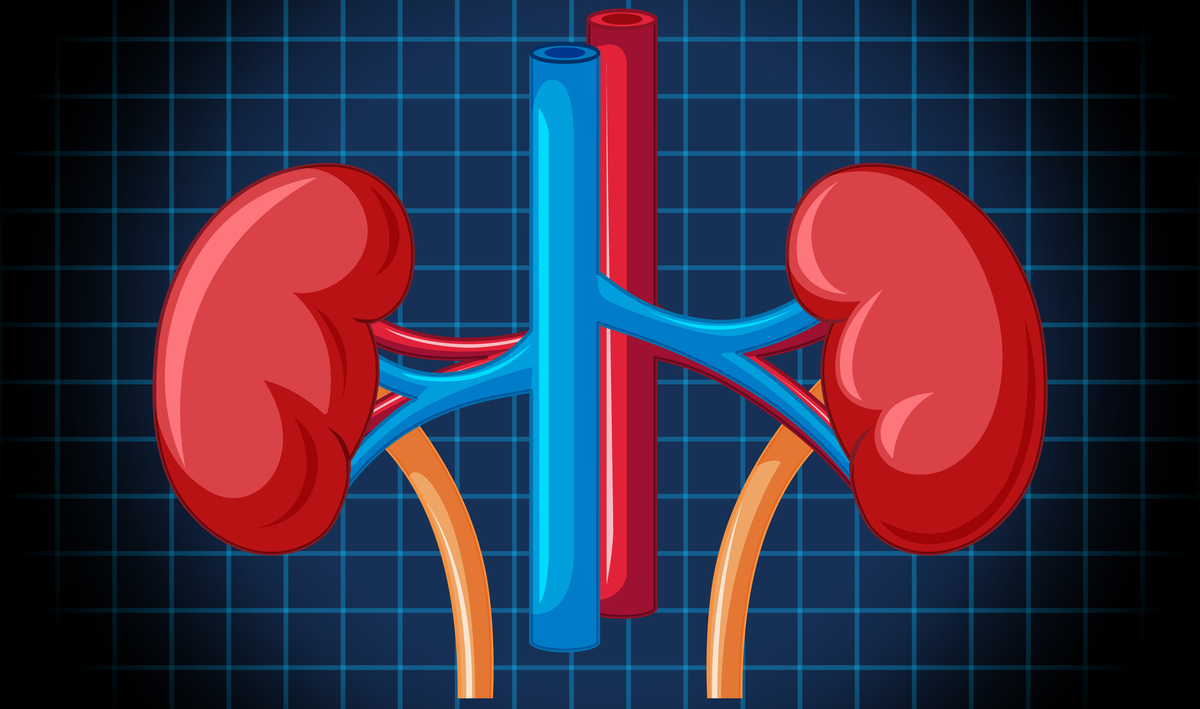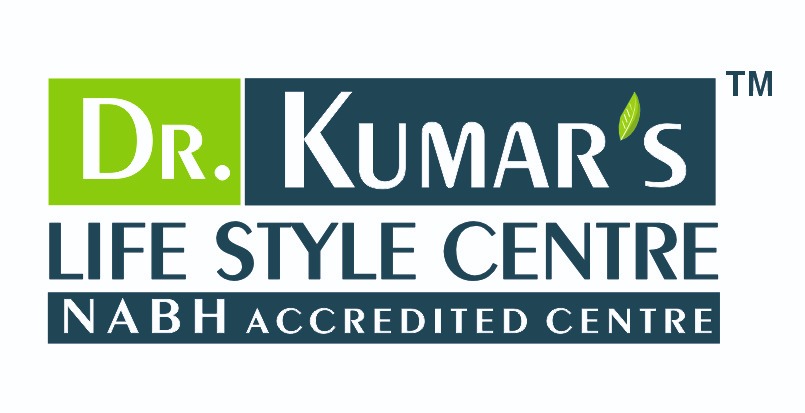
Chronic Kidney Disorder
- Dr Kumar
- December 1, 2022
Chronic Kidney Disease (CKD) is spreading very fast word wide, in India approximate prevalence of CKD is more than 800 per million population (PMP), ESRD (end stage renal disease) cases are about 200 PMP. With modern lifestyle, changed eating habits and stress making it worse. In most CKD cases by the time they got to know about it, it is always late. Ignorance is also one of the major reason of it, patient with uncontrolled or irregular high blood sugar and high blood pressure are more prone to Chronic Kidney Disease(CKD).
What tests are useful and common to check your kidney health?
- KFT (Kidney function test), it is a simple blood test which can be done at any authorized Lab. In KFT your creatinine level and Blood urea level are important parameters to know, other parameters are your mineral levels i.e. sodium, potassium, calcium also get tested to further analyses your kidney and heart health.
- GFR (Globulin Filtration rate) it is also done through a blood test and also through urine test, it tells the percentage of your kidney function.
- Urine test to check micro albumin level in case you KFT report is not normal.
- Radiological test like whole abdomen or KUB ultrasound , CT scan also can identified the changes in kidney function, specially the sizes of kidneys as some time kidneys shrunk in CKD or related disorder.
Most common reasons for CKD:
In India due to heavy population and unhygienic condition and poor dietary regulations making it very common. Use of heavy metals, nephrotoxins, poor sanitation, pollutants and food adulteration are also contributing in this. Some of most common factors are as bellows:
- Lifestyle disorders
- High salt and high sugar intake
- Regular intake of fried, processed, canned food.
- Obesity.
- Limited physical workout.
- Dehydration
- Stress & anxiety
- Smoking
- Heavy alcohol consumption
- Uncontrolled diabetes
- Uncontrolled hypertension
- Heart diseases
- Malnutrition specially vitamin D, calcium, phytonutrients and essential fatty acids
- Over use of pain killers, steroids and self-medication
- Autoimmune disorder
- Trauma which affects kidneys
- Over and unsafe use of multivitamins and herbal products.
- Uncontrolled and untreated UTI and inflammation of kidneys
Common symptoms of CKD:
CKD is a slow and progressive loss of kidney functions and many of time it may not have any symptom at all and suddenly a person may collapse due to renal failure. Some common but nonspecific symptom may arise like but not limited to CKD itself:
- Vomiting
- Nausea
- Fatigue
- Weakness
- Low HB
- Loss of appetite
- Urinating more or less
- Sleep disorder
- Muscle cramps
- Swelling on feet and ankles
- High blood pressure which is hard to control
- Dry and itchy skin
- Shortness of breath and chest pain due to fluid builds up in lungs
How to prevent CKD?
Though it is a silent and slow progressive disease and most of time patient got to know in a very advance stage, now as we know its nature so we can keep a check on it. In case you have any family history or you are diabetic and hypertensive you should be more vigilant about it, periodic test as suggested (KFT & GFR) can be done. Never ignore your raised sugar level and blood pressure level. by staying physically active and having healthy food we can minimize the chance of getting CKD. Some common preventive steps are:
- Regular exercise
- Limit smoking and alcohol use
- Healthy diet including fresh fruits, nuts, seeds, vegetables, fibers and enough liquid.
- Keep your mental health sound and do meditation to destress and bring positivity
- Avoiding self-medication especially use of pain killers and steroids based products.
- keep your bowl clear
- avoid over use of supplements and herbal formulations
- limit sugar and salt intake
- Don’t ignore raised blood sugar and blood pressure.
- In case you have any problem in your KFT, specially raised creatinine and blood urea, you must consult and specialist rather than going with online “Nuskas”.
What option a CKD patient have for treatment?
In many medical research it has been found that CKD is not reversible, but other side in Ayurveda and some alternative treatment modalities it is found that it can be better if systematic treatment is to be given and patient changes his lifestyle and dietary pattern. In recent time many patients are getting benefits and avoiding regular Dialysis by controlling their creatinine and blood urea. When it comes to managing CKD it is also very important to manage comorbidities like diabetes, blood pressure, obesity, nutritional deficiencies, these all can be managed very effectively with good lifestyle practices and alternative methods of naturopathy and Ayurveda without posing any side effects on kidneys and body functions.
In modern allopathy system along with medication, dialysis is advised. It has its own side effects and repercussions.
Most important things to know for CKD patient is this that there is no magic and shortcut to deal with CKD, patient with CKD should be very care full while choosing the way of treatment, he should always consult a professional in either modern allopathy, Ayurveda , naturopathy of any other way of treatment.
In my own experience a systematic and inclusive approach to treat and manage CKD is very effective.
No single treatment modality can claim to have full control over treatment, in modern allopathy treatment starts with medication than dialysis and then transplant is the only option, whereas Ayurveda and naturopathy gives some hope to delay this process which is painful and also economically expensive.
Treatment protocols for CKD in various treatment sides:
Modern allopathy- patient being managed by medicines of various type depends on comorbidities along with dialysis support, in case condition deteriorate and renal system fails completely than kidney transplant is the only option. Lifestyle change, diet modification and fluid control is also required with treatment. It has also its own limitations and side effects and treatment is not at all easy, in this treatment it has already been considered that it is not reversible and curable so there is no hope any treatment left and management is the only option.
Ayurveda – Ayurveda philosophy believes and works on regenerative mechanisms, it focuses more on preventive side but in CKD it may play a curative role as well. Many of patient these days are getting benefits through Ayurveda treatment s where they are able to avoid dialysis and able to manage their condition in a much better way, though we can’t claim complete recovery but life in many cases can be better with this.
Naturopathy– naturopathy is based on the principle of detoxification, and in CKD patient the core problems are toxins which accumulates in the body due to reduced natural filtration process of our body, these toxins are creatinine, blood urea, uric acid and mineral imbalance. Through naturopathic processes these toxins can be filter out of the body, main therapies which are useful in CKD are massage, dry friction, abdominal hot and cold therapy, GH lappet, chromo therapy, hydrotherapy, mud therapy, acupuncture etc. selection of therapies should be as per patient condition and tolerance. Patient vital parameters should be checked on regular basis.
Considering your potassium and mineral balance as per KFT report, your diet may include selected fruits and nuts. Some fruits and vegetables are restricted like pottato, tommato, spinach, banana, coconut products, olive, avocado, dates, oranges, dairy products, whole wheat bread, brown rice, sweet potato, raisin etc.
The actual diet depends on the severity of the disease. Low potassium, low sodium and low phosphorus diet is recommended.
Yoga therapy, Homeopathy/ electro homeopathy and neurotherapy- these also proved beneficial without posing any side effect when it comes to reduce creatinine and blood urea and minimizing the symptoms of comorbidities. These can play a good role as a supportive therapies with any of main line treatment.
Mixopathy (inclusive approach to treat chronic disorders like CKD) – so far no pathy is complete and every method of treatment has its own limitations and shortcomings, modern allopathy is also learning and growing on it past experiences, Ayurveda has less researches on modern complications, naturopathy had no system to deal with emergency, but if we use each of their strength, I am sure we can manage CKD in a much better way.
At our center we have done this on several patient and results are very exciting, we keep modern allopathy also where it’s needed the most and make Ayurveda and naturopathy also the part of treatment. Many patients are managing their condition comfortably without dialysis and discomfort.
The most important things to know for CKD patients:
These days’ online treatment claims are unlimited and everyone claims to treat you in just fraction of moment, some of such online claimant abuse modern system and claims to treat you without any medicines or so, CKD is a serious condition and every patient has its own situation which can be different from other, so be wise and always choose a systematic treatment based on evidence and your condition should be monitored well. You must not take any chance be vigilant about your reports, lifestyle, diet and stay relaxed. Don panic and don’t try any shortcut which is not tried and tested well.
Transplant should be the last call and before that trying systematic treatment of Ayurveda and naturopathy is advisable.
You may call our helpline to take a guidance from our specialist. We have all specialist of all modalities under one roof.
We wish you best of health.
tags – kidney failure,Chronic kidney disease,High creatinine,Uncontrolled diabetes,Hypertension,Kidney reversal,Ayurveda treatment for kidney failure,Naturopathy in kidney disease,Hydrotherapy for chronic kidney disease,
